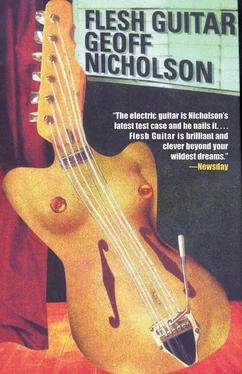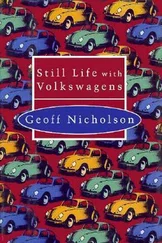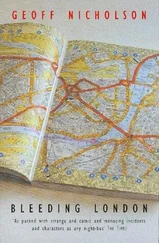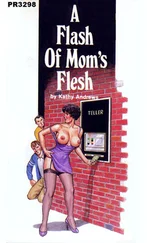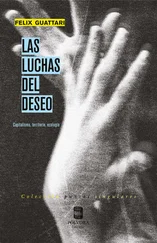Jenny took the offer at its face value and said OK. She could tell that Billy was surprised and not necessarily pleased. He obviously never imagined that she’d take him up on it, and perhaps he hadn’t thought through all the implications of travelling into the bush with a strange white woman, but now that she’d accepted, he was too proud to withdraw or modify his offer. The trip was on.
Billy Nation turned up next day at Jenny Slade’s hotel in a battered old Land Cruiser, decked out with roo bars, sand ladders, spare petrol cans and tyres. It was thickly powdered with oxidized red sand, as if it were trying to camouflage itself and blend in with the earth.
Billy’s cello took up very little space inside the Land Cruiser. Jenny loaded up her own gear, and Billy drove away from the civilization of Alice Springs into the low, blank desert landscape. As they drove along increasingly unmade roads the equipment in the back rattled and bounced around as though creating some long, free-form percussion solo. Jenny feared breakages but Billy was oblivious. She wondered whether he would put a cassette into the stereo, wondered what music he’d think appropriate for the trip, but the player remained unused, Billy preferring to hear the song of the wind and the road.
Jenny Slade stared at the slowly undulating land, at the anonymous dirt road, the endless low scrub and said, ‘It looks like an easy place to get lost in.’
Billy Nation smiled the smile of a man with inner knowledge and wisdom, and didn’t deign to reply.
‘So who are these people we’re going to see?’ Jenny asked.
‘Good guys. The best.’
‘What do they play?’
Billy seemed to be thinking long and hard about his reply. ‘I guess you’d have to call it country music,’ he said. He laughed and Jenny laughed with him. She was beginning to understand. If the country itself was created by song, then how could there be anything other than country music?
They drove on and on into the red vastness, wrecked cars by the roadside, kangaroos and emus bouncing in the middle distance, disused mines and shacks on the horizon. Jenny lost track of the time but when Billy eventually stopped the Land Cruiser after three hours or so, she was glad of the break. They appeared to be absolutely nowhere, a scrubby bit of outback no different from the last hundred miles of terrain they’d passed through, but Billy, she assumed, saw it differently.
He got out of the Land Cruiser and headed for the nearest high place, a mound of red sand that was not really very high at all, but he climbed it, stood on top and scanned the territory, exalting, as if reclaiming it for himself. She let him stand alone there for a long time before she went to join him.
‘It’s a big, big place,’ she said.
‘Even bigger when you’re lost,’ Billy added.
She looked at him and smiled to acknowledge his dry wit, but he didn’t smile back. He wasn’t being witty.
‘Yeah, OK, all right,’ he said defensively. ‘I’m lost, OK, I’m lost.’
‘What, do you mean you don’t know the songlines for this area?’
‘That’s one way of stating the problem,’ he said, sounding peevish and urban now, not at all the attuned man of the desert she’d set out with.
‘Don’t you have a map in the truck?’ she asked.
‘If I had a map I wouldn’t be lost.’
He slunk away, brooding and simmering in silence. Jenny looked around. The lack of landmarks was startling. There was nothing at all to navigate by. She caught up with Billy.
‘Well,’ she said positively, ‘not so very long ago we passed a mining camp. We could drive back and ask them for directions.’
‘It was at least fifty miles back,’ Billy said bleakly. ‘I don’t have enough petrol to get us there.’
‘Oh dear,’ said Jenny.
‘I had other things on my mind, all right?’ Billy said, defending himself from accusations Jenny had no need to voice.
‘We could light a fire,’ Jenny suggested. ‘A distress signal.’
‘No matches,’ Billy said, and before she could suggest anything else he added, ‘It gets worse. I don’t have any food and I only brought half a pint of water.’
She looked at him as though he were a subhuman idiot.
‘Is it my fault if I was brought up in a suburb of Melbourne?’ he whined. ‘I just read about the songlines in a book, like everyone else.’
It was late afternoon. At least the sun was past its hottest point. They stood in silence not daring to look at each other, having absolutely nothing to say. Jenny thought of the various forms of murderous revenge she could take on him and feared that the land might do the job for her all too soon.
‘There is one possibility,’ he said weakly at last. ‘As it happens I always carry a portable generator with me, just in case. It’s petrol driven. I could siphon the last of the petrol out of the Land Cruiser and then we’d have a little power.’
‘And then?’
‘And then you could play your guitar.’
‘I’m not in the mood for a jam session.’
‘I’d do it myself but a cello isn’t the same.’
‘What are you on about?’
‘You’d play the guitar very, very loud. The noise would carry for miles. Somebody would hear it and come and see what it was all about. They’d have food and water, maybe even petrol. At the very least they could tell us where we were.’
It sounded like an idiotic plan to Jenny but she couldn’t think of anything better so she agreed to it. They unloaded the necessary equipment from the Land Cruiser and set it up at the roadside. Billy siphoned the petrol, brought the generator to life and Jenny was ready to play. It was hard to know what was the right repertoire for such a venue and such a gig, but she started to improvise a long, searing, high-pitched solo and she hoped that somebody, somewhere could hear it.
It was getting dark now and as her notes spread out over the emptiness, the enterprise seemed increasingly absurd. She felt they were wasting precious energy that they might need later for survival. The darkness gathered, night thickened, and the sound of Jenny’s guitar became ever more lonesome, ever more forlorn. It seemed an utterly futile activity.
Suddenly, as she was thinking of giving up, out of the darkness a boy appeared. He was a young, shaggy-haired Aboriginal, perhaps twelve years old, in shorts and bare feet. The moment Jenny saw him she stopped playing and they stood looking at each other in wary silence. She was going to speak when the boy turned his back and began to walk away. She called after him but he didn’t stop or reply so she struck a loud power chord and he turned and beckoned for her to follow him. She unhooked her guitar and was about to put it down, but he gestured again and indicated that he wanted her to bring the guitar with him. He further indicated that Billy Nation should bring the amplifier. Billy protested for a moment but the boy was having none of it. If they wanted his help he’d have to bring the amp. Above all else Billy did not want to be left alone in the outback, so he picked up the big amp and speaker cabinet and the three of them proceeded through the bush in a curious little procession.
They hadn’t travelled far before they came to a large tin shed built on the bank of a dried-out river bed. There was a row of lights along the edge of the roof and the sound of a jukebox coming from within. The boy held open the split wooden door and Jenny went inside, closely followed by Billy Nation in his new role as roadie.
There were perhaps thirty people inside the hut, mostly young and mostly Aboriginal, though not exclusively either. A bar made out of beer crates ran along one side of the room, and the walls were painted an insistent canary yellow. There was a drum kit set up in one corner, along with a microphone and a beautiful, battered old piano with sconces and fretwork.
Читать дальше
